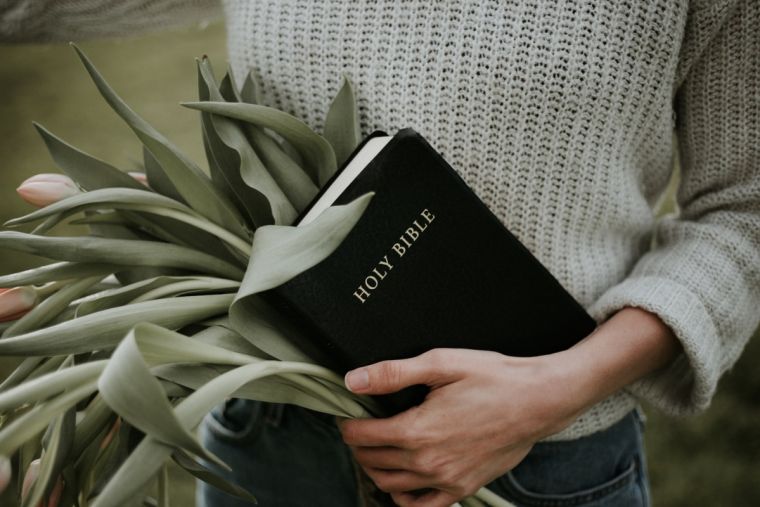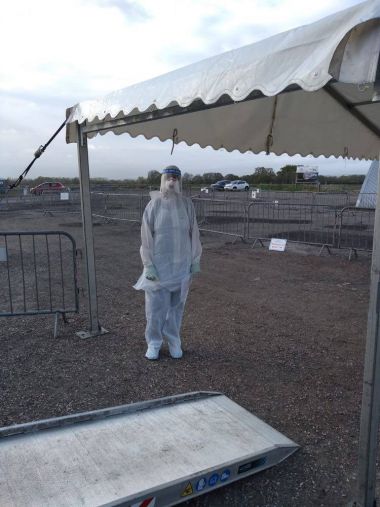In these unusual times, what is God calling you to do?

On Sunday, the Catholic Church globally celebrated what it has termed Vocations Sunday, when churches around the world encouraged parishioners to ask the question "What is God calling me to be?". This year in the UK, the celebrations revolved around the theme "called by name".
Vocations Sunday, in a traditional sense, has seemed to focus on those looking towards priesthood and religious life. Praying for religious sisters or brothers, encouraging others to consider the priesthood and such activity are of course all necessary ways to celebrate vocations within the Church. In more recent times though, the concept of vocation has revitalised and we are now reminded that it revolves around each person discerning who it is they are called to be. In the times in which we are currently living, our ideas about vocation are adapting even more.
The understanding of vocation, in the Christian sense, is that it is a call from God to help us become holy. If we are faithful to this, we will, with God's help, become all that we have always wanted to be. It is less about a job or achievements, but instead about how we are called to give of ourselves in the fullest way, in a way that serves others.
As the world faces extreme challenges and people are called to service and to help in any way they can, it is seemingly ordinary people, with ordinary jobs that are becoming "heroes" and "angels", and singled out as being called to be extraordinary. Others, who's work is suspended, are called to the exact opposite – to not work, and to stay at home.
One such "hero" of our current time is Clare, a doctor, currently stationed in a Covid-19 testing hub.
Clare says that when she was younger, she initially resisted the call to heal others: "I thought about being a doctor when I was young, then moved away into the arts for many years, but always thought I should be doing something else."
She sought solace in scripture, while applying to medical school, and came upon a passage where Jesus went out and healed the sick. This was the certainty she needed. She still faces moments of uncertainty, not least in the face of the current pandemic. But she is consoled by the "huge privilege of trying to help others, sometimes by healing, and sometimes just by bringing comfort".
Right now, many of us are unable to live out our vocations in the ways that we normally would. This is challenging for Jobe, a manager of community arts projects and a musician, who has had his work suspended. But this has given him a different opportunity, a way to live his calling in new ways. At the moment, as he can't produce music in Church, he has set up a virtual a series of 'Hymns at Home' for people to join in with from wherever they are.
He talks about his vocation as being something that continues to give him opportunities that he never expected: "I get to play African, Haitian, Indian, classical, pop, gospel music. These opportunities have blessed me with experiences and friends that inform everything I do."
Vocations Sunday is often accompanied by a national prayer for vocations, thanking God for the blessing of priests, deacons, brothers and sisters, and to help those who are still deciding. It is not a prayer for priests to start appearing out of thin air: ready-made, sin-free and without a doubt that they are on the right path. For Fr Ryan, a priest of the Archdiocese of Birmingham, the way that we sometimes talk about vocations creates a sense of expectation from others, which he finds challenging.
"For some people, a priest is supposed to be some kind of expert or guru. Thing is, I am a human being too, just trying to do what I am called to do in co-operation with grace," he said.
Deacon Thomas too, feels this pressure to "live up to people's understandably very high expectations". However, this shouldn't, he says, make you "afraid to break the mould and do what your heart tells you".
Fr Ryan feels that he was "called by name" precisely as the person that was "formed and made".
"I love and cherish the fact that priesthood is not defined by anything we do. I am a priest: it is part of who I am. It is who God is calling me to be," he says.

Deacon Thomas too, although finished with formal formation, still keeps discernment as part of his daily practice: "Keep praying. Keep talking to God like you do your friends and close family members. Just tell him everything."
This year, in Pope Francis' message for Vocations Sunday, he reminded us that "taking the right course is not something we do on our own, nor does it depend solely on the road we choose to travel".
In Phoebe's case, this road was also dependent on that of another: her future husband. Now also a mum, Phoebe met her husband as she left school and so "wasn't thinking about marriage". But the call became clear: "I finally realised that this was my calling when I thought about my future and I could not even begin to imagine it without my (now) husband. Luckily, he felt the same!"
Just like Clare, Fr Ryan and Deacon Thomas, Phoebe's vocation is not without what Pope Francis calls "ghosts that trouble our hearts". Phoebe says that she sometimes finds being a wife and a mother "daunting". She asks the questions: 'Can this really be the right path? Am I doing the right thing?'
There is always a state of uncertainty associated with vocation, not limited to young families. The current climate creates another layer of uncertainty – churches closed, no masses, visiting those in need a risk and our path in life abruptly hitting roadworks.
So, what happens when your job is no longer your job? When what you spend all-day-every-day doing is not at this moment relevant to who you are? Arguably, we are given the opportunity to listen – to the stories of others; to that little voice that is calling us to do something courageous; to our own name.
The unique nature of our vocational call is part and parcel of the unique set of talents we are gifted with. As with our names, we are given something specific to do.
In his message this year, Pope Francis' words echo the applause around the world for healthcare and key workers: "The first word of vocation, then, is gratitude."
So next time you are outside your front door, as well as showing your gratitude for those called to help us in these difficult times, remember to listen out for God's call, your own unique calling by name.
Nina Mattiello Azadeh studied music and philosophy and was a Faith in Politics media intern in 2016. She has a keen interest in interfaith relations, social action and is a classical ballet dancer. Follow her on Twitter @Ninamataz











